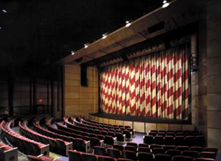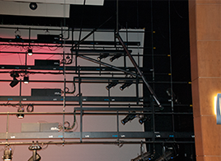
What Makes a Great Stage Manager?
Stage managers, though they are not very visible during a professional performance, are a crucial part of a play or concert’s success. Becoming a great stage manager takes time, practice, and patience to achieve mastery in the craft. Before the curtain is drawn, a stage manager has been working hard behind the scenes for months to ensure the performance’s success. There are many factors that separate a good stage manager from a great one, but if you’re looking to become better at stage management, these are some helpful, “must follow” tips to live by.
4 Traits All Great Stage Managers Must Possess to Ensure the Success of Any Performance
Know the Script Inside and Out
Even though they themselves are not the ones performing, great stage managers know the script or setlist like the back of their hands. Even an “a” or a “the” can be a cue for a prop or lighting change. Knowing all the little details can make a difference, even if this seems excessive at first. Knowing the script perfectly influences all stage management decisions for lighting, set design, sound, costumes, and so on – so great stage managers know it by heart well before the curtains are drawn.
Track Every Aspect of the Performance and Keep Pages Upon Pages of Notes
From choreography to lighting to blocking, there are so many things that stage managers are responsible for. With so much to keep track of, it can be easy to forget a detail or two, unless you take loads of notes. Great stage managers keep notes on just about everything from the length of scenes to sound directions. Having every detail written down ensures that everyone knows what to do every moment in the performances and cues don’t go ignored. Great stage managers are incredibly organized and attentive to even the slightest of details. These are just some of the things they keep track of and update on an ongoing basis:
- Crew and performer contact information
- Rehearsal schedules
- Conflict calendars
- A properties’ list
- Set designs
- The costume plot
Know All the Crew Members Very Well and Foresee Any Potential Issues
With so many people and personalities there are bound to be problems and differences in opinions time and time again. Great stage managers make sure everyone’s voice feels heard and anticipate potential problems before they happen. Being prepared helps mitigate the damage in arguments and also, minimize the impact of errors that are made during the live performance. Having many backup plans for various situations is critical, because things can, and do often go wrong.
Apologize If a Mistake Is Made and Move Forward
With so many aspects of the play stage managers are responsible for, they’re bound to make mistakes. Great stage managers hold themselves accountable for their actions and are not afraid to admit when they are wrong. Owning up to mistakes is important for instilling responsibility for every other cast and crew member. Leading by example is crucial, so great stage managers know how important it is to not throw fits on set or sulk. Great stage managers learn from mistakes quickly and are willing to adapt for the good of everyone. They understand that a successful performance is a team effort.
Great Stage Managers Trust SSRC for Their Theatrical Product Needs
Since 1987, SSRC has been trusted by professionals everywhere to deliver quality theatrical products at the most competitive prices. With a wide array of theater essentials, SRRC can deliver exactly what you need to ensure the success of any professional performance. Our customer service is completely dedicated to meeting your needs and assuring your satisfaction.
Posted by admin
Recent Posts
Archives
- January 2022
- December 2021
- November 2021
- October 2021
- May 2021
- April 2021
- March 2021
- February 2021
- January 2021
- October 2020
- September 2020
- August 2020
- July 2020
- June 2020
- April 2020
- March 2020
- January 2020
- November 2019
- October 2019
- August 2019
- July 2019
- May 2019
- April 2019
- March 2019
- February 2019
- January 2019
- November 2018
- October 2018
- September 2018
- August 2018
- July 2018
- June 2018
- May 2018
- April 2018
- March 2018
- January 2018
- December 2017
- October 2017
- September 2017
- August 2017
- July 2017
- June 2017
- July 2016
- June 2016
- May 2016
- March 2016












